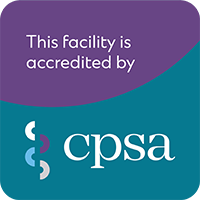Electromyography (EMG)
DIAGNOSING NERVE & MUSCLE INJURIES

NERVE TESTING
Assessing causes of numbness, tingling, and nerve pain.

MUSCLE TESTING
Assessing causes of weakness, and coordination.

ASSESSING FUNCTION
EMG tests the function of the nerves and muscles to find the root of your problem.
What is an Electromyography Test?
Electromyography (EMG), by definition, is a diagnostic procedure to assess the health of muscles and the nerve cells that control them (motor neurons). Electromyography equipment includes tiny devices called electrodes that are used to transmit or detect electrical signals. A nerve conduction study uses electrodes taped to the skin (surface electrodes) to measure the speed and strength of signals traveling between two or more points. In certain cases, a needle electrode inserted directly into a muscle records the electrical activity in that muscle. An Electromyography test can reveal nerve dysfunction, muscle dysfunction or problems with nerve-to-muscle signal transmission.
Take a look at this video for more information on what to expect during an Electromyography test
Why am I Being Sent for Electromyography Testing?
How Long Will the Electromyography Test Take?
The tests usually take 60 to 90 minutes. You can do any of your normal activities, like eating, driving, and exercising, before the electromyography tests. There are no lasting side effects. You also can do your normal activities after the tests.
What do Nerve Conduction Studies Show?
Nerve conduction studies show how well the body’s electrical signals are traveling to a nerve. This is done by applying small electrical shocks to the nerve and recording how the nerve works. These little shocks cause a quick, mild, tingling feeling. The doctor may test several nerves.
How do I Prepare for an Electromyography Test?
Make sure to notify your doctor about any over-the-counter or prescription medications you may be taking. It’s also important to tell your doctor if you have a bleeding disorder, or if you have a pacemaker or implantable defibrillator. You may not be able to have an electromyography procedure if you have any of these medical conditions or devices.
It is important to take certain measures for electromyography test beforehand which are as follows.
- Avoid smoking for at least three hours before the procedure.
- Bathe or take a shower to remove any oils from the skin. Don’t apply any lotions or creams after washing.
- Wear comfortable clothing that doesn’t obstruct the area that your doctor will be evaluating. You may be asked to change into a hospital gown right before the procedure.
- Also, if you are prone to having cold hands or feet, try to wear warm gloves or socks on the day of your test.
What are the Risks of Electromyography Procedures?
An electromyography test is a very low-risk exam. However, you may feel sore in the area that was tested. The soreness may last for a few days and can be relieved with an over-the-counter pain reliever, such as ibuprofen.
In rare cases, you may experience tingling, bruising, and swelling at the needle insertion sites. Make sure to tell your doctor if the swelling or pain becomes worse.
What is the Body Restoration EMG + Program?
Referral
For Health Care Professionals
Consultation with one of our medical specialists requires a referral from a physician, chiropractor or physiotherapist.



